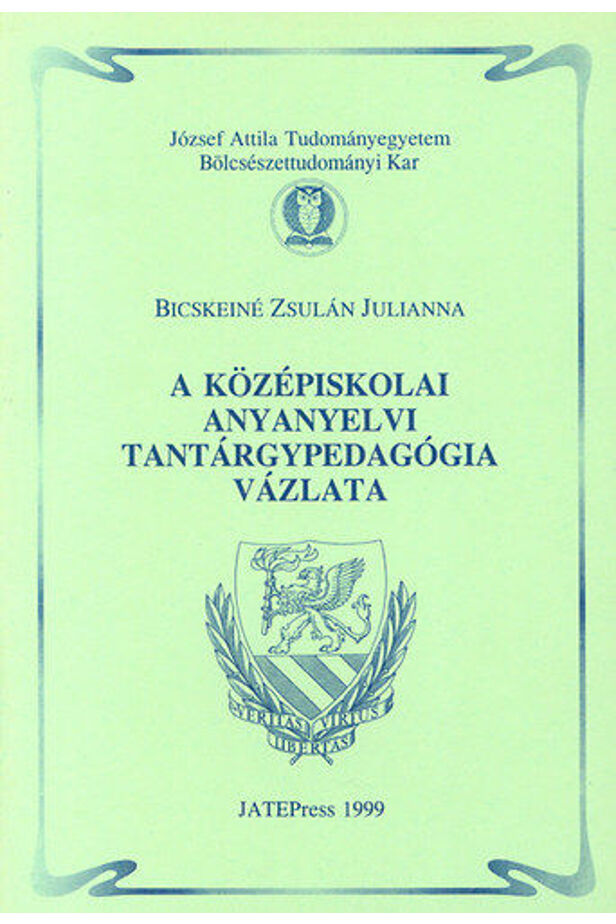Outline of mother tongue subject pedagogy in secondary school
Delivery time: 2 - 3 business days
Quantity:
HUF 590
Description
Table of contents: PRELIMINARY REMARKS I. INTRODUCTION 1. The concept and place of subject pedagogy in the science of pedagogy 2. The history of the last decades of mother tongue teaching 3. Bibliography II. CONTENT OF MOTHER TONGUE EDUCATION 1. General characteristics of curricula 1.1. Target system of mother tongue curricula 1.2. Task system of mother tongue curricula 1.3. Subject areas of mother tongue education 1.3.1. Lower primary school: knowledge and skills 1.3.2. Upper secondary school 1.3.3. The secondary school curriculum 1.3.3.1. Knowledge A. General linguistic knowledge B. Histology C. Grammar D. Stylistics E. History of language 1.3.3.2. Skills development A. Reading, text comprehension B. Text analysis C. Text creation D. Style development E. Spelling F. Spelling G. Use of scientific manuals 2. Textbooks of mother tongue education 3. Lesson framework of the subject “Hungarian language” 4. Bibliography III. MOTHER TONGUE EDUCATION IN THE TEACHING CLASS 1. Modern interpretation of the teaching process 2. Organizational forms of the learning-teaching process 2.1. Frontal class work 2.2. Teamwork 2.3. Individual work 3. Methods of mother tongue education in classes (forms of student and teacher activity) 3.1. Task solution (task types and thinking operations) 3.2. Discussion 3.3. Vita 3.4. Communication 3.5. Illustration 3.5.1. In-language illustration 3.5.2. Illustration with non-linguistic devices 3.6. Concentration 3.6.1. External concentration. Internal concentration 3.7. Playful forms 4. The main didactic tasks of the teaching lesson 4.1. Motivation: arousing students' interest 4.2. Developing new knowledge 4.2.1. Inductive procedures. Deductive processes 4.2.3. Heuristic procedures 4.2.4. Programmed procedures 4.3. Application of knowledge, skills development practice 4.3.1. The speech 4.3.2. Reading 4.3.3. Writing 4.4. Consolidating knowledge 4.5. Monitoring and evaluation of the level of knowledge and skills 5. Bibliography IV. CONCLUSION 1. Planning of mother tongue education 1.1. The curriculum 1.2. Thematic plan 1.3. The lesson plan and the lesson plan 1.4. Class attendance, lesson analysis aspects 2. Mother tongue education outside the classroom 2.1. Catching up 2.2. Talent management 2.3. Optional curriculum education 3. Bibliography
| publisher | JATEPress |
|---|---|
| writer | Bicskeiné Zsulán Julianna |
| scope | 136 |
| volume unit | oldal |
| ISBN | 3159780000162 |
| year of publication | 1999 |
| binding | soft board, glued |

Sign up for our newsletter and be the first to know!
A Zamnia hírlevélre való feliratkozással megerősítem, hogy betöltöttem a 16. életévemet.


